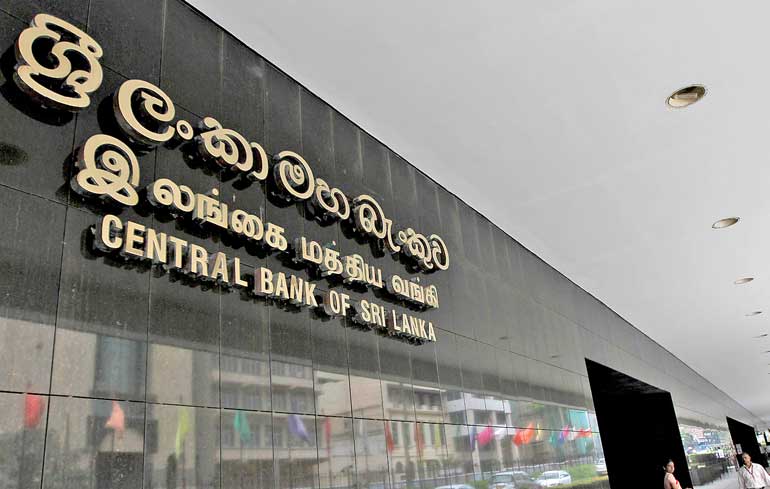Saturday Feb 14, 2026
Saturday Feb 14, 2026
Tuesday, 28 December 2021 01:49 - - {{hitsCtrl.values.hits}}

We are all concerned about the yawning abyss before us threatening us with many challenges needed to overcome to avoid falling into the crevasse. Some factors are beyond our control and others have fairly possible leeway to bypass with careful maneuvering. There are all kinds of players lining up in this situation each with his or her own game plans. 
Some are trying to fish in troubled waters, while there are others with interests of guarding against impending punishments and working towards ruses to expiate for their sins and former lapses. Those in authority are hell bound to prevent unexpected uprises or political debacles constantly instigated according to our sordid political culture.
Be that as it may, the fact of the matter is, there is an impending danger which all of us have to be mindful and conscious of. Situation manifests in different ways. Both health-wise and economically the effectiveness is felt seriously. These factors are common in the global scenario. But our own responsibility of addressing mitigatory measures remains as national and domestic obligations vested in the authorities. The resolution and measures have led to debates involving all walks of life in society from ordinary folks to academia.
In the meantime, there are also ‘Dhammika peniyas’ offering and pronouncing their own prescriptions. The roles of academia involved also have become controversial due to the convictions of each according to the school of thought and theories they are rooted in. Some from Chicago School of Economics pronounce curing methods they are familiarised with by their masters while there are others who tend to address their minds in different and sometimes unorthodox methods.
Ordinary views are also relevant because they are closer to the repercussions people are exposed to. So the intellectual debate has extended and spread to the diversities of Milton Freidman, Anna Schwartz, Keynes etc. etc. For us, the ordinary folks, we wait with our fingers crossed sometimes caught up in the middle of the exchange of fire at each other and the stratagem adopted accordingly. While we have no way of entering these highly theoretical deliberations directly, we have access to many writings, comments and views expressed available before us to console ourselves just like referring to the internet websites to find out the side effects of medication administered by specialists to our ailments. So let us examine and probe into this quagmire in that spirit.
Rising inflation
Many have started pinpointing at the rising inflation figures and most of them refer to it as a highly vicious phenomenon. They also point out that the increasing prices, printing of money and depleting foreign reserves are the contributing factors. As we are caught up in the middle of these bewilderments I happened to, playing the role of granddaughter ‘Aseni in the Wijewardena episode’, (which has become extremely popular among the ordinary folks), to examine and search some written facts about these highly controversial issues by more modern economists. To my extreme delight and surprise, I came across the following;
“… an exceptional tax on capital is the best way to reduce a large public debt. This is by far the most transparent, just and efficient method. Inflation is another possible option, however. Concretely, since a government bond is a nominal asset, (whose price is set in advance and does not depend on inflation) rather than a real asset {whose price evolves in response to the economic situation, generally increasing at least as fast as inflation, as in the case of real estate and shares of stock}, a small increase in the inflation rate is enough to significantly reduce the real value of the public debt. With an inflation rate of 5% a year rather than 2%, the real value of public debt, expressed as a percentage of GDP, would be reduced by more than 15% (all other things equal) which is a significant amount.”
The author Thomas Piketty, who was quoted recently by an ardent Communist leader here in Sri Lanka, has addressed several age old orthodox economic pronouncements in a rather revolutionary manner while also considering the impact of such old theories in retrospect rather than the projected viewpoints when they hypothesised those, has provoked much thinking throwing more light on the subjects.
He has further elucidated, “Indeed, it is important to understand that without an exceptional tax on capital and without additional inflation, it may take several decades to get out from under a burden of public debt as large as that which currently exists…….”
This is highly relevant for us to examine in the context of the plight we are in today.
Role of the Central Bank
Our CBSL has become the ‘bite of the era’, coming from the times of RW/Arjuna Mahendran Treasury Bond combination and now the policy advisers of the day asking ‘What is the Central Bank doing?’ at their discussion forums to address the economy. We know one thing. The central banks do not create wealth, but they are there to redistribute it. They merely create financial assets and liabilities, which when created always balance each other. They cannot augment capital. It will be a Utopian imagination to think that central banks could create capital under their powers. It would be absurd and astonishing if it could happen. The Central Bank cannot set the rate of inflation nor can it force the economy to resume its growth. “The liquidity created by the Central Banks probably avoids deflation and depression…”.
But if the law permits, the Central Bank can even buy up all the businesses in a country and also invest in energy, education and take control of the entire economy. But such things are abstract to imagine in a democratic set up. Central banks in their limited ways have intervened in tiding over difficult situations and at times of serious economic recessions such as what the world experienced in 2008. All economists have agreed and regard central banks as the lenders of the last resort and they will intervene in doing whatever is possible to avoid a financial collapse. Central banks are required to create the liquidity necessary to save the troubled banks, and to avoid a collapse in the financial system.
Foreign exchange crisis and depleting reserves
Many talk about this. Some of course use that as a criticism to accuse the Government to gain political mileage. It is astonishing to note that they are also offering to help the Government to overcome the problem but on conditions of joining the fray (bandwagon) of the Government.
So, their main concern is how to get into power and not help the country to overcome a difficult period per se. What kind of politics is this? Ours is a country which depends heavily on external sources to maintain our resources. If we analyse the potential sources, we could see this clearly. Our principal sources of exchange income are from exports, tourism and foreign remittances. The first two are certainly beyond our control. The global situations are directly applicable and influence our sources. The global situation for exports and tourism are both extremely fragile being either affected totally or restricted in an irregular manner due to the pending pandemic ups and downs. So, the only sector we could positively fix our aims and targets for improving is the remittance area.
Our annual income from remittances remained around $ 7.1 billion till 2020. But with the onset of the pandemic and the other disadvantages built around the exchange parity rates the value of remittances drastically came down. Now it is in the region of approximately $ 3 billion. The positive factor underlying this position is that we are left with a clean target of about $ 4 billion to chase behind to restore our original position. We have to adjust our policy packages immediately to meet this requirement. Let us find out why the amount has fallen and take steps to address the reasons.
One obvious thing is the highly organised illegal fund transfer system. They offer high rates because of the currency shortage in the country and the problems the banking system is facing. Our policymakers should know that it is not possible to challenge this by offering the prevailing black market rate to the prospective remitters. Because the black marketers will increase their rate following any Government increase. We have to resort to schemes offering other incentives to the remitters which the black market cannot offer.
The foreign employed people will get tempted and attracted by those making them to decide to send the remittances through formal channels. But the incentives we offer should be unique, uncommon and special for those employed overseas. The other important element is they should have immediate impacts. Hence our policy package should comprise of short-term and medium-term benefits accruing to those remitting funds through official channels.
Offering Rs. 10 as an incentive to those who can chase behind Rs. 40 sounds a little awkward and not practical. Instead, we will have to offer the foreign employed persons to import vehicles under concessional duties by making them pay all charges in foreign exchange. If they have to fulfil certain eligibility requirements to qualify for this package they will readily do so. There are many other attractive areas of importance to those employed overseas which can be extended as effective incentives to entice them to remit their earnings through official sources.
The resolution of the crisis should not be a scapegoat for the rejected politicians to hang on to power positions. They should be exposed for their hypocrisies to prevent them from deceiving the public so that they will not be able to come to power in this manner. If they are interested in building up the country, they should come up with policies attractive to people.